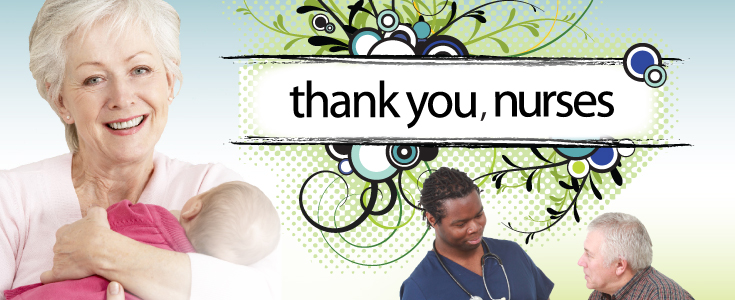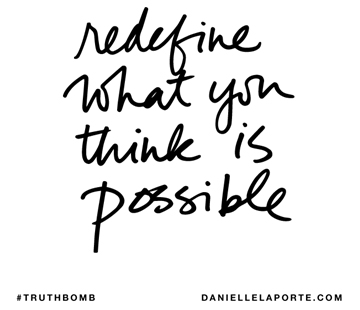
May 11th - 17th is national nursing week, and offers the perfect opportunity to recognize the powerful role nurses play in health care working with people of all ages. Regardless of where you are in your life, when you interact with the health system, chances are very good that you will encounter a nurse as part of that interaction.
Related links
The Nurses' Emergency Department Working Group: addressing issues, step by step
Move to Improve making things healthier and safer by getting people moving
Acute care nurses score higher than national average in survey
A nurse is present to help bring a baby into this world, to help support a person transition at end of life . . . and everything in between. Nurses offer a holistic perspective of health, and a person's mental, physical emotional and spiritual health is considered. Along with primary care delivery, nurses are there should an accident, injury or illness occur. A nurse helps people walk through the life journey with episodic acute care, health promotion and prevention. And when the time comes for long term, elder or palliative care, a nurse is there to support you at that time in your life. This lifelong contribution of a person's health and wellbeing is why the Canadian Nurses Association chose "every step of the way" as this year's nursing week theme.
Rick Mercer also has some interesting insights on nursing, and the impact nurses have on a community's health. Never doubt how the work you do makes a difference. Watch it here
To me this theme speaks to the varied nature of nursing roles, the impact nurses have throughout a person's life, from birth to death and the leadership role of a nurse in moving systems forward.
It's something the general public realizes too. They consistently rate nurses to be one of the most trusted professions.
In our regional patient experience surveys, people have told us one of the things they value most is the comfort that nurses offer. Whether that's through emotional support, information sharing, responding within a timely manner or offering solutions to pain, it's the thing that stays with people after their experience with the health system. In fact, the survey conducted by the National Research Corporation of Canada, Winnipeg nurses in acute care scored higher than the national average. While this is an acute care survey, it helps give us a sense of what people are thinking about nurses in the Region.
Regardless of a nurse's formal job title, each nurse has the capacity to be a leader and agent of change.

Nurses are doing things to improve patient flow, and systems throughout the Region. Based on feedback from nurses, a working group between emergency departments and the Manitoba Nurses Union is looking at how to improve things in emergency departments. You can read about their work here. Nurses at the Grace Hospital are also contributing to ways to increase mobility in the elderly, which translates into greater safety and shorter hospitals stays. Read about Move to Improve here.
Nurses like to get things done and it can be frustrating as making system change is challenging and slow moving. It is a very good thing that nurses are also persistent and committed to continuous improvement.
I was recently asked what makes me proud to be a nurse. My response was that hearing from members of the public about individual positive experiences they've had with nurses within the health system. There are so many examples of good work happening each and every day. That's what gets me out of bed in the morning.
The challenge often lies in being so focused on problems that we can't see what's working. We are so focused on finding solutions or making improvements that we aren't able to see and celebrate the good things that happen every day.
And we are doing a lot of things right. Satisfaction scores tell us that. And instead of brushing that information off, I think it's important to take pride in what people are telling us. And to sit in the moment and receive and accept the positive feedback they're offering about our contribution.
I invite you, at the end of the day, to take the time to acknowledge what you did that made a difference. Did you offer care or support to someone who needed it? Did you provide insight or a perspective that helped a colleague? Did you share your knowledge and help make something better? What actions or choices - big or small - made things better for someone that day?
It's from that perspective I share nursing specific information from the AON Hewitt Employee Opinion Survey. One consistent theme in all the feedback received across the Region is that people want their efforts recognized and valued. They want to be appreciated for what they're doing.
While it is important to receive this recognition from our supervisors, it can mean just as much or more to hear it from our nursing colleagues. I invite you to verbalize your discoveries from these quiet moments of inquiry. If you realized you worked really well on a particular day with a colleague, tell them. If someone provided insight or feedback at a crucial moment that was particularly meaningful or helpful, share that with them. Read more about what nurses are saying about their workplace.
Instead of wishing you could have done more in the midst of a busy day, I hope you'll consider all the good things that did happen in a day . . . and maybe how to do more of it. What really positive things do we need to do more often? What's working? Build on what works. Consider this as well as what needs improving. Invite your coworkers to be a part of this appreciative inquiry and you may be surprised at what you discover.
And then? Tell me about it. I invite your emails celebrating good work, ideas and innovation at [email protected].
To acknowledge the art and science of nursing in the Region, we've created a video that includes photos of nurses in action. I hope you and your colleagues will take a few minutes to watch it, but also to listen to the heartfelt thank you in the music accompanying the video. I do want to thank you for all you do to improve health and wellness in the Region, for being an agent of change and inspiration.
